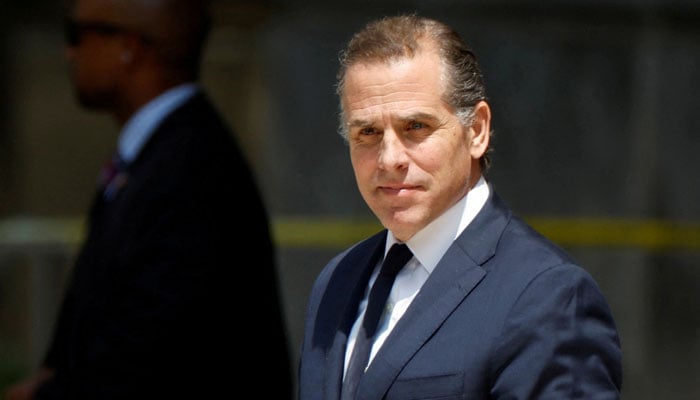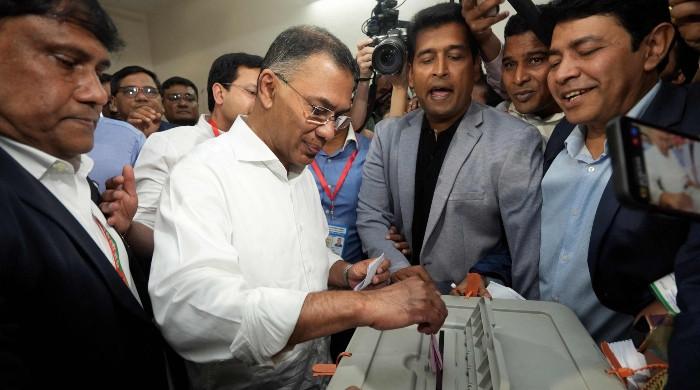Hunter Biden indicted on nine counts of tax evasion
If convicted, President Biden's son will face up to 17 years in prison
December 08, 2023

- Hunter Biden didn't pay $1.4 million in federal taxes for four years.
- He spent huge sums "on drugs, escorts,... everything but his taxes".
- He pleaded not guilty to gun charges in October.
Hunter Biden was charged with nine counts of tax evasion on Thursday, marking the second time this year that the special counsel looking into the personal and financial affairs of President Joe Biden's son has brought charges against him.
The 56-page indictment filed in US district court in California states that Hunter Biden "engaged in a four-year scheme to not pay at least $1.4 million in self-assessed federal taxes he owed for tax years 2016 through 2019," according to special counsel David Weiss.
He was hit with three felony and six misdemeanour tax offences, according to the indictment. If convicted, Hunter will face up to 17 years in prison.
The Justice Department said its investigation into Biden is ongoing.
"The Defendant engaged in a four-year scheme to not pay at least $1.4 million in self-assessed federal taxes he owed for tax years 2016 through 2019," the indictment read.
It added that he had instead spent huge sums on "drugs, escorts and girlfriends, luxury hotels and rental properties, exotic cars, clothing, and other items of a personal nature, in short, everything but his taxes".
This also included over $70,000 on drug rehabilitation, Reuters reported.
It is unclear when Hunter Biden will appear in court as his lawyer and the White House has not commented on the matter.
The indictment says Hunter Biden "earned handsomely" while serving on the boards of Burisma, a Ukrainian industrial conglomerate, and a Chinese private equity fund.
Hunter Biden in October pleaded not guilty to charges in Delaware that he lied about his drug use while buying a handgun, in the first criminal prosecution of a sitting US president's child.
Weiss, who is leading the probe into Hunter Biden, was appointed Delaware US attorney by former president Donald Trump. He was made special counsel by Attorney General Merrick Garland in August.
He brought charges in Delaware against Hunter Biden after the unravelling of an earlier proposed plea deal that had called for him to plead guilty to two misdemeanour tax charges for failing to pay taxes in 2017 and 2018, an agreement which likely would have allowed him to avoid prison.
US District Judge Maryellen Noreika rejected the proposed plea deal in July, raising concerns over its legality and the scope of immunity it offered.
Trump, the leading contender to be the Republican Party's nominee in next year's presidential election, said the plea deal amounted to favourable treatment for the president's son.











